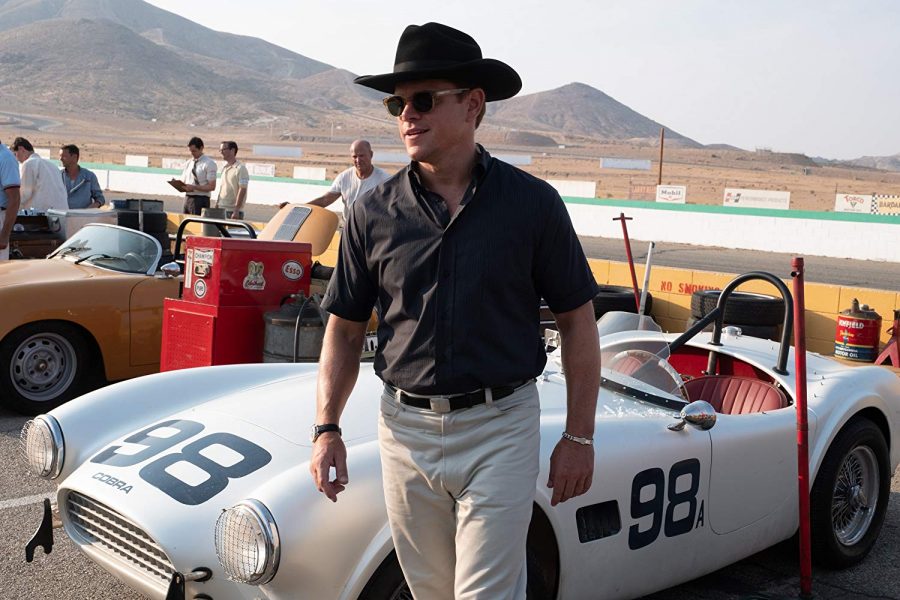“Ford v Ferrari” fires on all cylinders
Matt Damon plays car-culture folk hero Carroll Shelby.
“Ford v Ferrari,” the latest film from “Logan” director James Mangold, is a fun and refreshing piece of cinema that demands to be seen in the theater. Based on the true story of Ford’s bid to enter the racing market with an unlikely win over Ferrari at the 1966 24-hour Le Mans, the movie has the perfect balance of character, story and spectacle.
The most engaging aspect of the film that commands our attention is the exquisitely constructed, multilayered conflict. In a sense, “Ford v Ferrari” is something of a misleading title. On one hand, the conflict that drives the film is Henry Ford II hoping to beat Ferrari by developing a car capable of beating them. However, there is an arguably more salient conflict between Ford’s management team and the team hired to create such an automobile.
Shelby, confined to designing cars after health issues pose a risk to him ever racing again, is convicted of what we learn early on: Ken Miles is the best driver for the job, despite being difficult to work with. They have the same kind of inescapable obsession with racing that turns it into an almost spiritual exercise, and this bond forges a powerful image of friendship.
Ford executive Leo Beebe, played by Josh Lucas, has an annoyingly marketing-executive-type bone to pick with Miles however. “He’s not a Ford man,” he tells Shelby, and much of the film’s middle act is spent trying to convince Ford to let the difficult Miles race. The heroes are thus pitted against two kinds of antagonists—those that want to beat them in the race and those that apparently seek to stifle their greatness.
Matt Damon and Christian Bale give career-defining performances as Shelby Cobra-designer Carroll Shelby and English-born racer Ken Miles, respectively. Damon disappears into the role of an American folk icon who is in many ways responsible for popularizing the ‘car culture.’ With his perfected, understated Texan accent and charming confidence, it’s one of those roles where the viewer leaves remembering the character rather than the actor.
Bale similarly shines in a decidedly simpler role than the actor is often celebrated for. Typically, Bale is known for his method acting that often involves massive weight gains or losses for films like “The Mechanic.” However, the nuanced and often explosive emotion—sometimes anger, sometimes pure ecstasy—Bale displays as the temperamental Miles reminds us that he’s capable of transformative performances even in the absence of extreme conditions.
Caitriona Balfe also gives a refreshing performance as Miles’ wife, Mollie. In many films involving a ‘creative’ man, the wife is depicted as a shrew that seeks to keep them contained to domesticity. Mollie, however, actively participates in Miles’ racing career as an equally-valued collaborator.
Finally, this film is best-watched in a theater setting. The visceral and high-octane racing scenes beg for the largest screen and loudest sound possible, placing the viewer in the seat of a machine traveling at over 200 miles an hour along with our heroes.
Race to the nearest theater to see “Ford v Ferrari” before you miss that chance.






